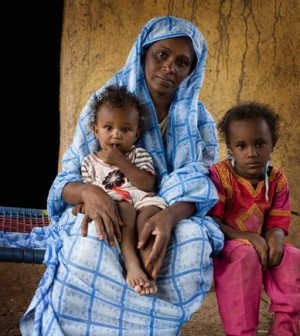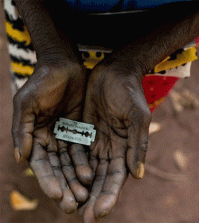- Mothering in a Fractured TimePosted 1 week ago
- Beneath the Surface: Revealing Life’s Goals nurtured from a Spiritual SeedPosted 1 week ago
- How We Kept Marital Peace while Traveling the World with Our KidsPosted 3 weeks ago
- How I Coped with Feeling Lost in a Changing SocietyPosted 3 weeks ago
- The Unexpected Liberation of a Butt DialPosted 2 months ago
- Why is France making abortion a constitutional right?Posted 2 months ago
millions of girls still at risk: female genital mutilation

Overwhelming opposition to female genital mutilation/cutting, yet millions of girls still at risk: UNICEF
WASHINGTON, D.C., – A majority of people in most countries where female genital mutilation/cutting (FGM/C) is concentrated oppose the harmful practice, according to a new UNICEF report issued today. Despite that opposition, more than 125 million girls and women alive today have been subjected to FGM/C and 30 million girls are still at risk of being cut in the next decade.
The report, Female Genital Mutilation/Cutting: A statistical overview and exploration of the dynamics of change, is the most comprehensive compilation of data and analysis on this issue to date.
Surveys in the 29 countries in Africa and the Middle East where FGM/C persists show that girls are less likely to be cut than they were some 30 years ago, and that support for the practice is in decline, even in countries where it remains almost universal, such as Egypt and Sudan.
But despite falling support, millions of girls remain in considerable danger. The report highlights the gap between people’s personal views on FGM/C and the entrenched sense of social obligation that fuels its continuation, exacerbated by a lack of open communication on this sensitive and private issue.
“fgm/c is a violation of a girl’s rights to health, well-being and self-determination.”
These are the words of Ms. Geeta Rao Gupta, UNICEF Deputy Executive Director. “What is clear from this report is that legislation alone is not enough. The challenge now is to let girls and women, boys and men speak out loudly and clearly and announce they want this harmful practice abandoned.”
The UNICEF report finds through surveys that not only are most girls and women against the practice, but that a significant number of men and boys also oppose FGM/C. In three countries, Chad, Guinea, and Sierra Leone, more men than women want the practice to end.
In terms of trends, the report notes that in more than half of the 29 countries where FGM/C is concentrated, girls are less likely to be cut today than their mothers. Girls between 15 and 19 are three times less likely to have been cut than women aged 45-49 in Kenya and the United Republic of Tanzania. Prevalence has dropped by as much as almost half among adolescent girls in Benin, the Central African Republic, Iraq, Liberia and Nigeria.
While FGM/C has been virtually abandoned by certain groups and countries, it remains entrenched in many others, despite the health dangers it presents to girls, and even where there is legislation against it and efforts by governments and NGOs to convince communities to stop.
In Somalia, Guinea, Djibouti and Egypt, FGM/C remains almost universal, with more than 9 out of 10 women and girls aged 15-49 being cut. And there has been no discernible decline in countries such as Chad, Gambia, Mali, Senegal, Sudan or Yemen.
While the report welcomes legislation against FGM/C that has been introduced in the vast majority of countries where is practiced, it calls for measures that complement legislation and leverage positive social dynamics to bring about a change in social norms.
The report recommends opening up the practice to greater public scrutiny, to challenge the misperception that ‘everyone else’ approves of the practice. It also points to the role education can play in bringing further social change, noting that higher levels of education among mothers correspond to a lower risk that their daughters will be cut and that while in school, girls may develop ties with others who oppose FGM/C.
For more information visit UNICEF.org
(photo © UNICEF/KATE HOLT)







